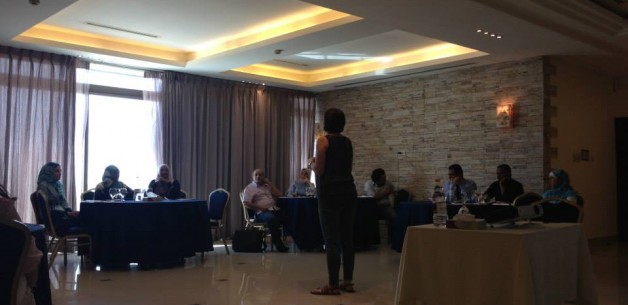This post is also available in: Arabic
September 2014
18 individuals representing civil society organizations from Egypt, Tunisia and Yemen met in Amman, Jordan in September 2014 to discuss where each country is currently in the Country Partnership Framework (CPF) process with the World Bank and how participants can build on the experience of their colleagues in other MENA region countries, as well as strategies and modes of engagement with the World Bank for the future.
At the moment Egypt is ahead in the CPF process compared to the other two countries. In fact the CPF process in Egypt is one of the World Bank’s pilot CPF processes around the world following the Bank’s recent adoption of the Country Partnership Framework as its new model of engagement in its countries of operation instead of the old Country Assistance Strategy (CAS) system. One of the main outcomes of the new framework for country engagement is that the CPF policy requires that a Systematic Country Diagnostic (SCD) be conducted prior to the drafting of the CPF. The SCD is supposed to be an unbiased assessment that is based on available evidence which looks at the opportunities for and main constraints to development in the country in question. The SCD is not only focused on the areas where the Bank is expected to engage in the country, but is a more general study. The process of drafting a CPF to govern the Bank’s operations in Egypt for the next 4 to 6 years is expected to be completed in the first quarter of 2015.
The Bank had announced that the CPF for Yemen will start in the beginning of 2015 and should be concluded by the end of the year. For Tunisia, the CPF process is expected to start in 2015 following elections.
For more information on the World Bank’s new CPF model please visit this page: http://www.bicusa.org/issues/country-partnership-framework/
More information on the CPF process in Egypt and the timeline can be found here: http://www.bicusa.org/feature/egypt-country-partnership-framework/

